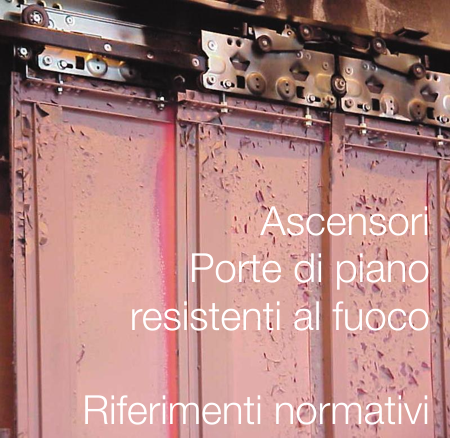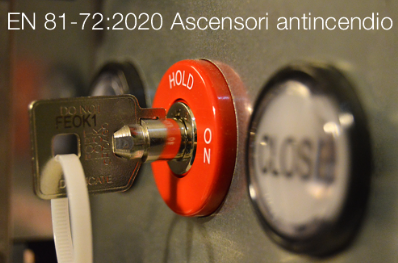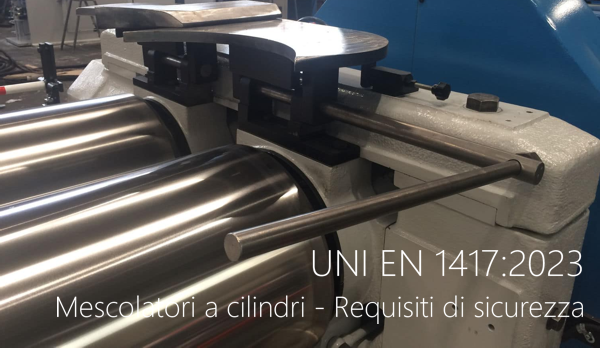// Documenti disponibili n: 46.592
// Documenti scaricati n: 36.658.932

1 The legal framework
Lift landing doors are part of lift installations subject to the provisions of Directive 95/16/EC of 29 June 1995 on the approximation of the laws of the Member States relating to lifts.
Essential health and safety requirement 4.2 of Annex I to that Directive states that lift landing doors that have to contribute to the protection of the building against fire must be suitably resistant to fire. The fire resistance of lift landing doors is thus a requirement of the Lifts Directive 95/16/EC that covers the corresponding requirement of the Construction products Directive 89/106/EEC.
This is in line with the provision of Article 2.3 of Directive 89/106/EEC (recalled in the 10th recital to Directive 95/16/EC) which states: “When a future directive concerns mainly other aspects and only to a minor extent the essential requirements of this Directive, that subsequent directive shall contain provisions ensuring that it also covers the requirements of this Directive”.
The conformity evaluation procedures to be applied for this aspect of lift safety are determined by the Lifts Directive 95/16/EC.
The documents relating to the conformity assessment of lifts with fire resistant doors must provide precise information relating to the fire resistance of the lift landing doors, including identification of the relevant test reports and test method used.
The necessary information concerning the fire resistance of the lift landing doors should also be provided by the installer of the lift to the person responsible for work on the building or construction, according to the provision of Article 2.2 of the Directive. Lifts with fire resistant landing doors certified as complying with the requirements of Directive 95/16/EC according to one of the conformity evaluation procedures laid down in that Directive can be placed on the market, installed and put in service freely in the EEA without the need for any further national approval.
The relevant documents, depending on the conformity assessment procedure applied, are:
- the EC type-examination certificate, see Annex V B - 5.;
- the Certificate of conformity, see Annex X - 4.;
- the quality assurance system documentation, see Annex XII - 3.2, Annex XIII - 3.2 or Annex XIV - 3.2. 2 2.
2. Standards for the testing of fire resistance of lift landing doors The Lifts Directive came fully into force in July 1999.
In the first years of application, most lift installers tested fire resistant lift landing doors according to harmonised standard EN 1634-1:2000 Fire resistance tests for door and shutter assemblies - Part 1: Fire doors and shutters.
This standard, mandated by the European Commission under the Construction Products Directive, was developed by CEN TC 127.
The test result gives rise to a classification of the doors according to standard EN 13501-2, in line with Commission Decision 2000/367/EC of 3 May 2000 implementing Council Directive 89/106/EEC as regards the classification of the resistance to fire performance of construction products, construction works and parts thereof.
In 2003, a specific harmonised standard for the testing of fire resistant lift landing doors was adopted. Standard EN 81-58:2003 Safety rules for the construction and installation of lifts - Examination and tests - Part 58: Landing doors fire resistance test was developed by CEN TC 10 under a mandate given by the European Commission under the Lifts Directive.
It specifies a method for testing the integrity of lift landing doors intended to provide a fire barrier to the spread of a fire from the landing to the floors above through the lift shaft and includes a classification for lift landing doors that is identical to the classification specified in standard EN 13501-2, in line with Commission Decision 2000/367/EC.
3. Implications
According to the Lifts Directive, application of standard EN 81-58 remains voluntary. Consequently, lift landing doors tested according to either EN 1634-1 or EN 81-58 can be accepted as complying with essential requirement 4.2 of Annex I of the Lifts Directive. However, since the references of standard EN 81-58 have been published in the OJEU3 , application of that standard confers a presumption of conformity with the essential requirement of the Lifts Directive. Furthermore, national regulations should not make application of either standard compulsory for the testing of lift landing doors.

UNI EN 81-72:2020 Regole di sicurezza per la costruzione e l'installazione degli ascensori - Applicazioni particolari per ascensori per passeggeri e per merci - Pa...

ID 21020 | 21.12.2023 / Preview in allegato
UNI EN 1417:2023 - Macchine per materie plastiche e gomma - Mescolatori a cilind...

ID 7634 | 26.01.2019
Pubblicata dal CEI, in lingua italiana, la IEC 60204-1:2016 (Ed. 6.0) (CEI EN 60204-1:2018), confermato il passaggio al CEN per l'armonizzazione (EN)...
Testata editoriale iscritta al n. 22/2024 del registro periodici della cancelleria del Tribunale di Perugia in data 19.11.2024